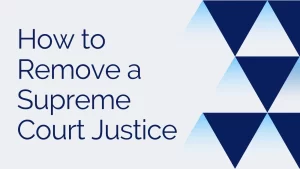How Long is a Continuance in Family Court?
Family court matters can often be lengthy and complex legal processes. One way the court manages busy caseloads is through granting continuances, which are postponements of court hearings and trial dates. Continuances give the parties more time to prepare or allow the court more time to address other pressing cases. However, continuances also prolong the legal process and can cause frustration for litigants who want resolution. So how long is a typical continuance in family court? Here’s what to know.
What is a Continuance in Family Court?
A continuance is the postponement of a scheduled hearing or trial in family court. Either party in a case can request a continuance, or the judge may order one sua sponte (on their own initiative). Reasons for granting a continuance may include:
- Scheduling conflicts for the attorneys or parties
- Illness or unavailability of parties or witnesses
- Need for more time to complete discovery
- Overbooked family court docket
- Settlement negotiations underway
- Substitution of counsel
Continuances give the court and litigants more time to prepare. But they also delay resolution, require more court resources, and prolong uncertainty. So judges must balance various factors when deciding whether to grant a continuance.
How Long Does a Typical Continuance Last?
The length of a continuance depends on the circumstances and is at the judge’s discretion. A continuance may last a few weeks to allow illness recovery or finish discovery. Or it could be months to accommodate complex proceedings, custody evaluations, or counsel substitution.
For minor scheduling issues, some courts grant short continuances of about 2-4 weeks. A reasonable continuance for more involved cases may be 1-3 months. Long continuances of 6 months or more are less common but may happen for exceptional situations like a party moving abroad.
Here are some typical continuance lengths:
- Minor scheduling issue: 2-4 weeks
- Reasonable request: 1-3 months
- Complex case needs: 3-6 months
- Exceptional circumstances: 6+ months
So while a continuance can last weeks to months, 1-3 months is common for many family law matters.
Factors Judges Consider in Granting Continuances
Judges decide whether to allow a continuance by weighing various factors, including:
– Reason for the Request
The reason behind a continuance request impacts whether the judge allows it. Illness, substitution of counsel, and settlement talks are more compelling than mere scheduling conflicts.
– Number of Prior Continuances
Judges grow reluctant to grant continuances if the case has had several already. Unless circumstances are exceptional, they will press for resolution.
– Case Complexity
Judges give more leeway for continuances in complex cases with voluminous documents or multiple witnesses. Simple matters get less latitude.
– Prejudice to Parties
A continuance must not unfairly prejudice either party. For instance, witnesses’ memories fading over an unnecessarily long delay could prejudice a party.
– Court Calendar
Judges weigh continuances against impacts on the court calendar. They balance the parties’ needs against keeping the docket moving.
– Statutory Timelines
Some family court matters have statutory deadlines, like termination of parental rights cases. Judges cannot let continuances violate these limits.
By weighing these factors, judges aim to allow reasonable continuances while also making sure cases resolve in a timely manner.
Continuance Limits in Family Court
To prevent excessive delays, some family courts impose limits on continuances, such as:
- Limits per party: Restricting each party to 1 or 2 continuances to prevent constant delays.
- Limits per case: Capping the total number of continuances allowed overall to keep the case progressing.
- Limits on length: Requiring that most continuances be no longer than 2-3 months, barring exceptional circumstances.
- Statutory limits: Termination of parental rights cases often have statutory limits of 12-18 months total. Continuances cannot violate these.
While judges decide continuances case-by-case, these types of limits aim to balance fair flexibility with avoiding unreasonable delay.
Impact of Continuances on Family Court Cases
Continuances have pros and cons. Potential advantages include:
- Allowing more case preparation time for thorough proceedings
- Enabling parties to complete parenting classes, custody evaluations, or other requirements
- Providing time for settlement talks outside of court
However, disadvantages may include:
- Increased costs for the parties in legal fees and lost work time
- Heightened stress on families from prolonged uncertainty
- Fading witness memories that may prejudice one party
- Children remaining in limbo longer in custody disputes
Judges weigh these impacts against fairness and practical needs in deciding continuance requests. Too many continuances can negatively affect families.
Alternatives to Continuances
To limit continuances, judges may pursue alternatives like:
- Partial continuances: Postponing only certain issues needing more time, while resolving others.
- Conducting proceedings as scheduled: Denying continuances that lack sufficient grounds and proceeding with the case.
- Timeline orders: Imposing strict deadlines for submitting evidence, conducting discovery, etc. to keep cases on track.
- Remote participation: Allowing parties or witnesses to participate from afar through video or teleconference.
- Interim orders: Issuing temporary orders on critical issues like financial support while litigation continues.
These options balance parties’ needs with resolving family disputes efficiently and cost-effectively.
When are ContinuancesLeast Likely to be Granted?
Judges are least inclined to grant continuances when:
- A case has dragged on excessively already
- The court calendar is very congested
- Statutory deadlines are nearing
- Evidence shows a party is deliberately delaying
- Minor scheduling issues arise frequently
- Prior continuances failed to resolve issues
After allowing reasonable flexibility, judges will press parties to move forward timely and in good faith. Continuances should aid resolution, not hinder it.
Consulting a Family Law Attorney
The length and number of continuances affects family law timelines. If facing a continuance request or decision in your case, consult an experienced family law attorney. They can advise whether the proposed continuance seems reasonable and in your best interests. An attorney can also argue to the court for denying unreasonable continuance requests by the other party. With wise counsel, you can navigate continuances while advancing your case effectively.
Conclusion
Continuances allow flexibility for parties to prepare for complex family court litigation. But judges balance accommodating legitimate needs against keeping cases progressing timely. Typical continuances may range from weeks for minor issues to several months when circumstances warrant. By understanding continuance practices, you can manage your expectations and advocate for your interests while your case works toward fair resolution. With patience and a skilled attorney, the delays of reasonable continuances need not derail obtaining justice.
FAQs
Q: What is the average length of a continuance?
A: For minor issues, continuances average 2-4 weeks. For more complex cases, they typically last 1-3 months. Longer continuances over 6 months are less common.
Q: Are there any limits on how many continuances can be granted?
A: Yes, some courts limit how many continuances each party can have or the total allowed per case, to prevent excessive delays. Limits are often around 1-2 per party or 3-5 total.
Q: Can a judge deny a request for a continuance?
A: Yes, judges can deny continuances they find unreasonable, unnecessary, or that would violate statutory deadlines. Their aim is allowing reasonable delays while also progressing cases timely.
Q: How much notice do you need to give the court for a continuance?
A: Local rules often require 10-30 days notice to the court and other parties for continuance requests, barring emergencies. This allows time to reschedule hearings and notify participants.
Q: Can continuances negatively impact my family court case?
A: Yes, excessive delays from too many continuances can increase costs, prolong uncertainty, harm witnesses’ memories, and keep children in limbo longer in custody cases. Judges consider these potential impacts.







